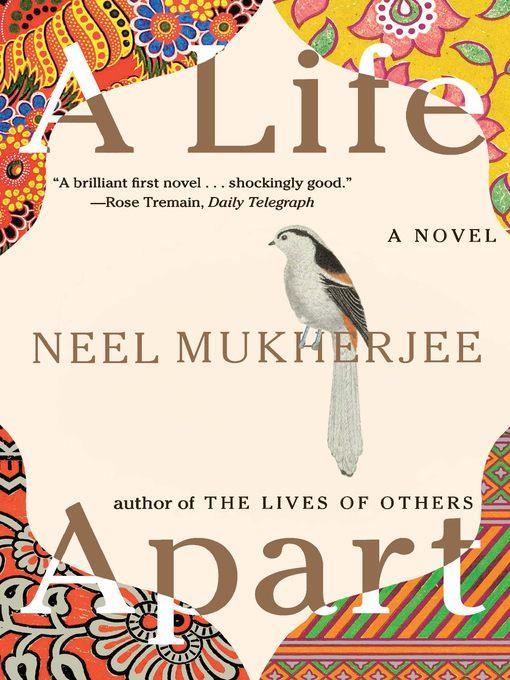
A Life Apart
A Novel
کتاب های مرتبط
- اطلاعات
- نقد و بررسی
- دیدگاه کاربران
نقد و بررسی

Starred review from January 11, 2016
Following his mother’s death, and soon after his father’s, protagonist Ritwik is surprised to find himself entirely alone in his Calcutta neighborhood at age 21, not nearly as happy as he’d hoped he’d be with his mother gone (she was both the “proudest” mother in the area and, seemingly, the most abusive, “always on the edge of fury,” if not in its throes). His loneliness follows him to rainy rural England, where a scholarship gets him two years in university, and then on to London, where he stays without working papers. Ritwik is unable to shake the trauma of his mother’s cruelty, punishing himself once she no longer can. Throughout this time, which is set in the early days of AIDS, Ritwik finds men with whom he can have brief, furtive encounters in bathroom stalls and on unlit backstreets, never learning their names, never allowing himself affection or trust. And yet he’s not without hope. Interspersed throughout the book are installments of Ritwik’s own forays into fiction, imagining one Miss Maud Gilby: a minor character from a Tagore novel and an intrepid, early 20th-century British woman intent on educating Indian women. Calcutta native Mukherjee (The Lives of Others) illuminates the crevices of shame and despair with his beautiful prose.

Starred review from March 1, 2016
Historical and contemporary, lit with flashes of magic and violence, this intriguing novel offers multifaceted portraits of India and England as seen from the perspective of a clever, burdened misfit. Released now in the U.S. after the success of his second novel, this prizewinning debut by Mukherjee (The Lives of Others, 2014) impresses with its fluid originality and ambition. Alternating chapters explore parallel narratives, one involving Miss Maud Gilby, an early-20th-century campaigner for women's education in colonial Bengal, the other devoted to modern-day Ritwik Ghosh, who escapes from Calcutta via a two-year scholarship to a British university and then stays on beyond his visa to live in social limbo in London. Horribly abused by his mother, Ritwik abandoned India after his parents' deaths but is now unmoored, with no religion or home, and is further marginalized by his homosexuality. Maud Gilby, meanwhile, turns out to be a minor character from fiction borrowed by Ritwik to feature in the story he's writing about India during a time of anti-British ferment, a tale of dislocated experience and exile mirroring Ritwik's life. In London he descends into the gritty worlds of undocumented labor and prostitution, scenarios intercut with oddly tender episodes spent taking care of his landlady, an 86-year-old with a past in India whom he tends with a concern that he could never show to his own mother. Ritwik's addiction to casual hookups draws him back repeatedly to the perilous yet thrilling sexual meat market around King's Cross Station, where he will find an inverted salvation through his relationship with a shady foreigner but will also discover the price of apartness. Consistently confounding expectations, Mukherjee's story of the gathering descent of a solitary soul is both poignant and unsentimental, the work of a notably sophisticated writer.
COPYRIGHT(2016) Kirkus Reviews, ALL RIGHTS RESERVED.

February 15, 2016
Mukherjee's debut novel follows the complicated journey of a young Indian immigrant forging a new life. Just a few months after his mother's unexpected death, 22-year-old Ritwik Ghosh receives a scholarship to attend college in England. Though Ritwik is grateful to flee Calcutta, he struggles to find his place as an outsider and is tormented by the difficult memories of an abusive childhood. Mental relief, though temporary, is found through risky sexual liaisons with strangers. When Ritwik's student visa runs out, he remains in England illegally, finding work in a diverse London neighborhood as a live-in caretaker. To make additional money, Ritwik soon descends into the dark chasm of life as an undocumented immigrant, taking on manual labor and prostitution. Interspersed with Ritwik's modern-day tale is one he is writing about an English governess named Maud Gilby. Living in India on the cusp of the 1905 partition of Bengal, Maud finds herself navigating an unfamiliar world which, mirroring Ritwik's, becomes increasingly tumultuous. Mukherjee's tale is deeply layered, offering a rich exploration into the ambiguity of belonging.(Reprinted with permission of Booklist, copyright 2016, American Library Association.)

























دیدگاه کاربران